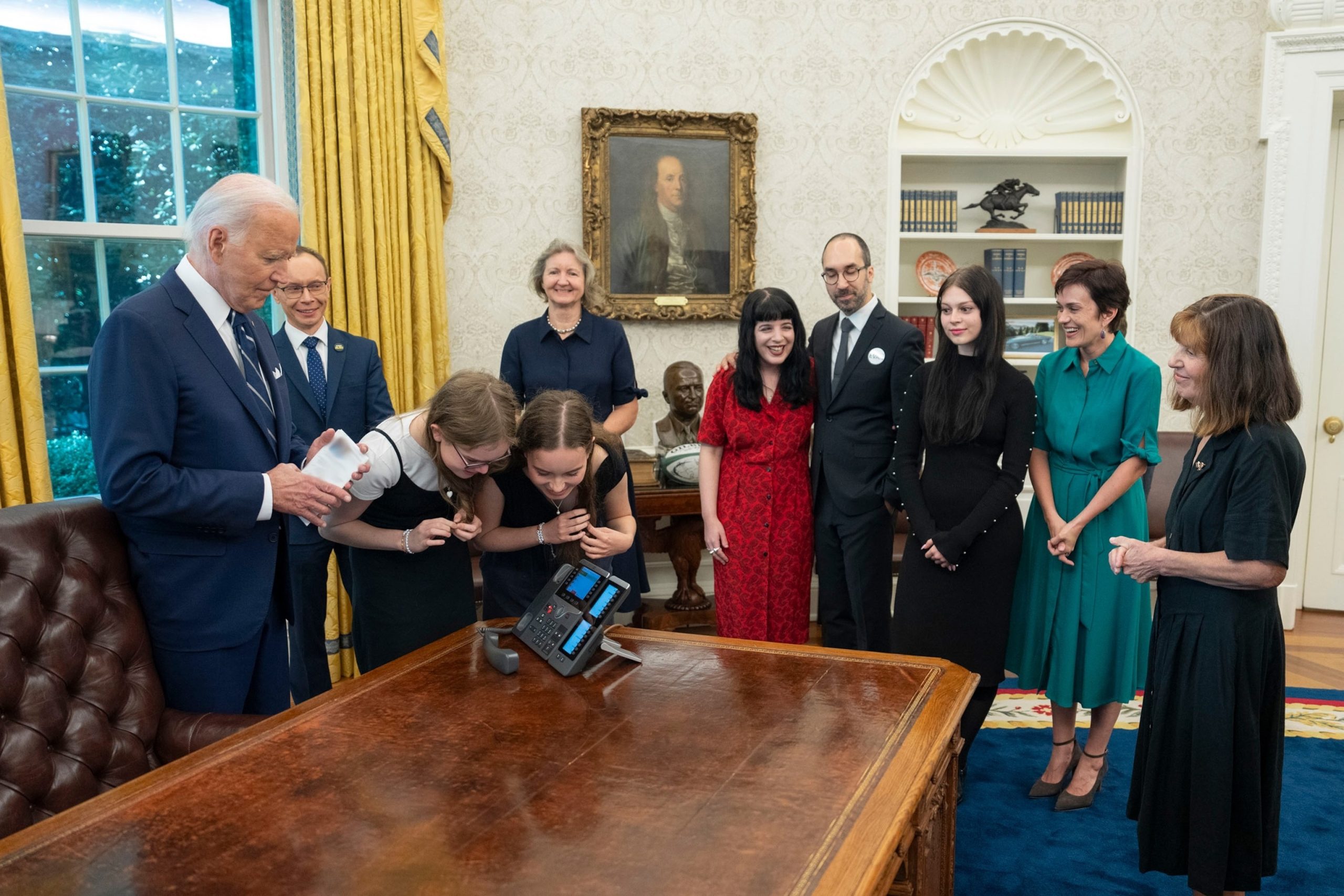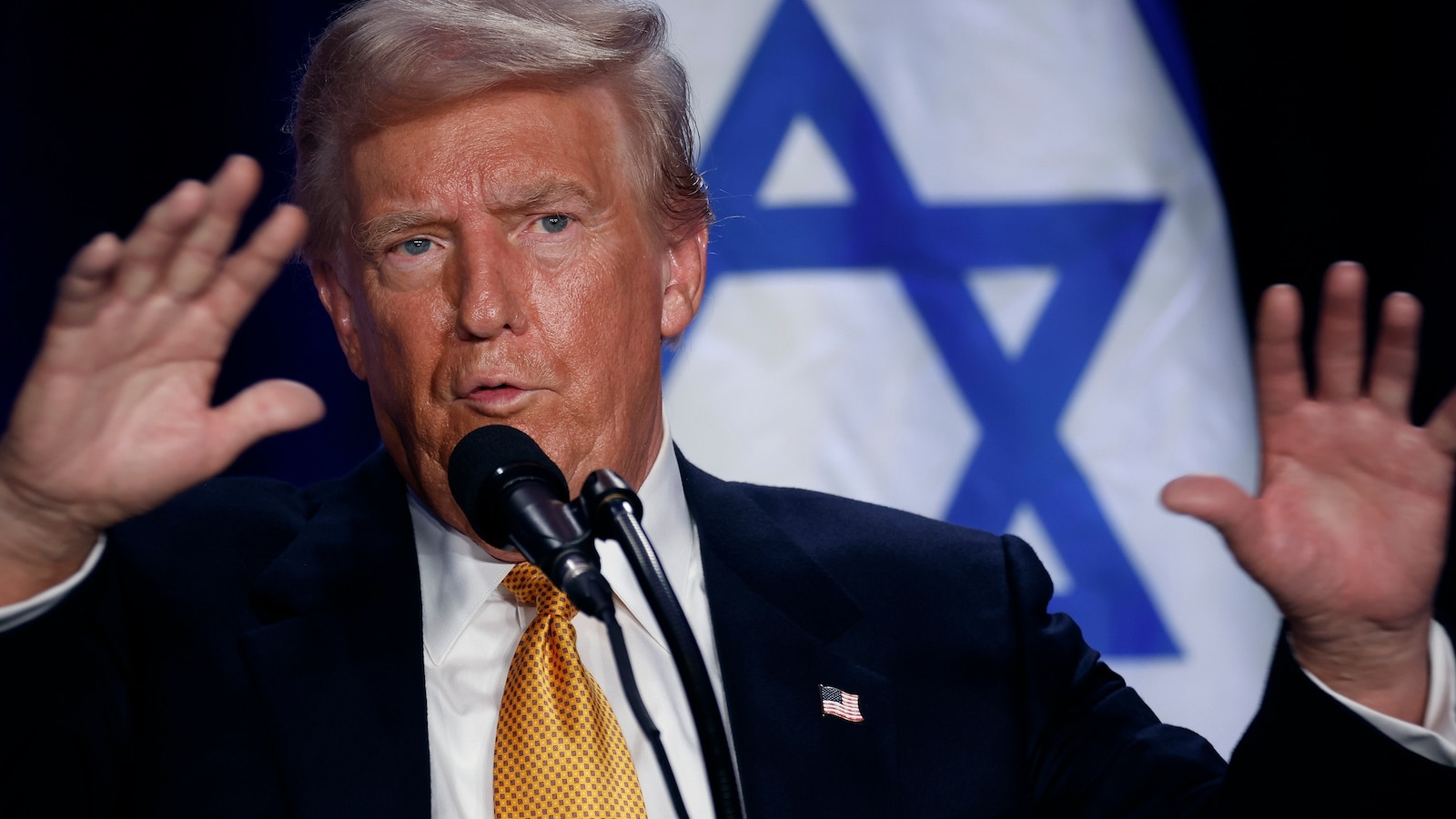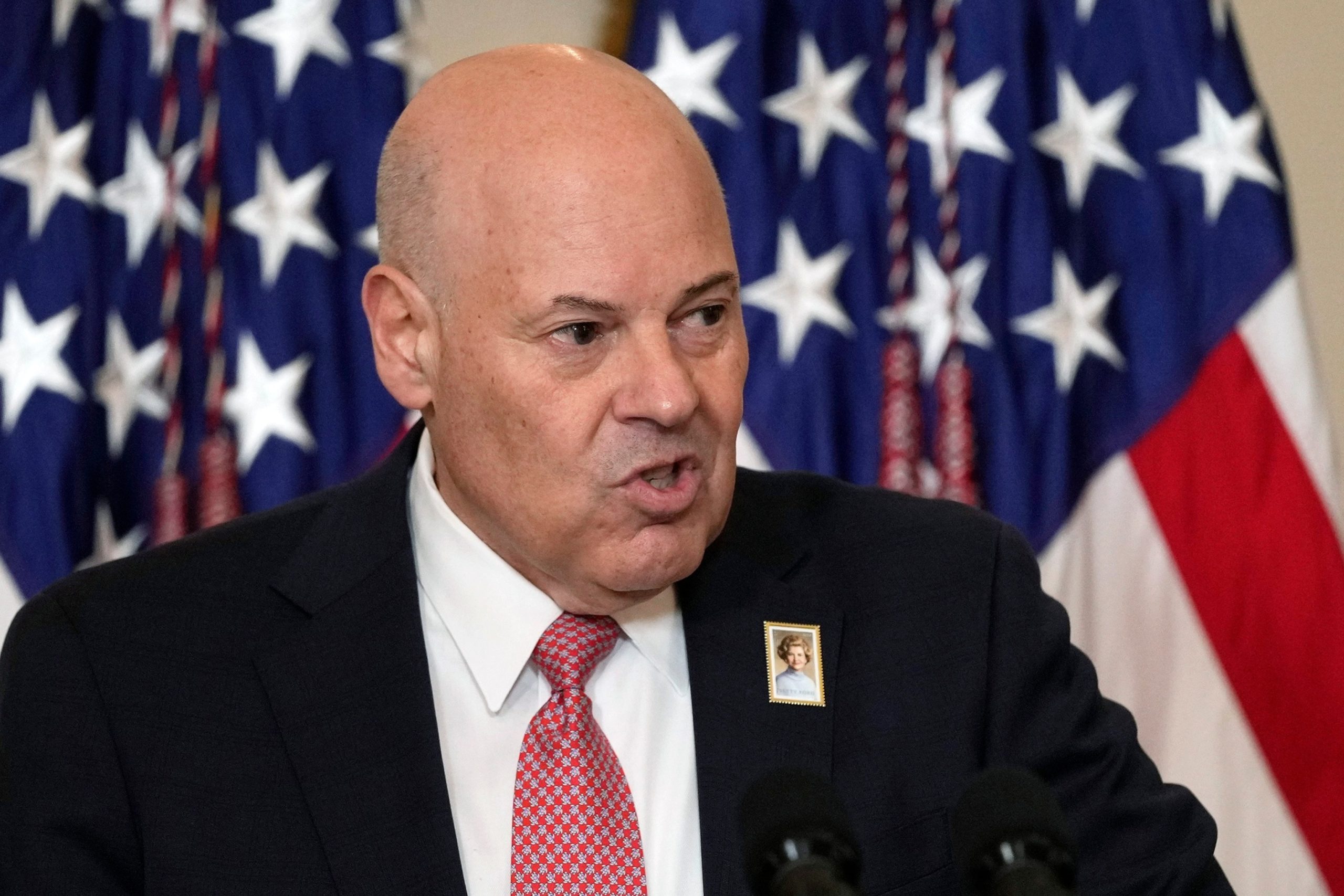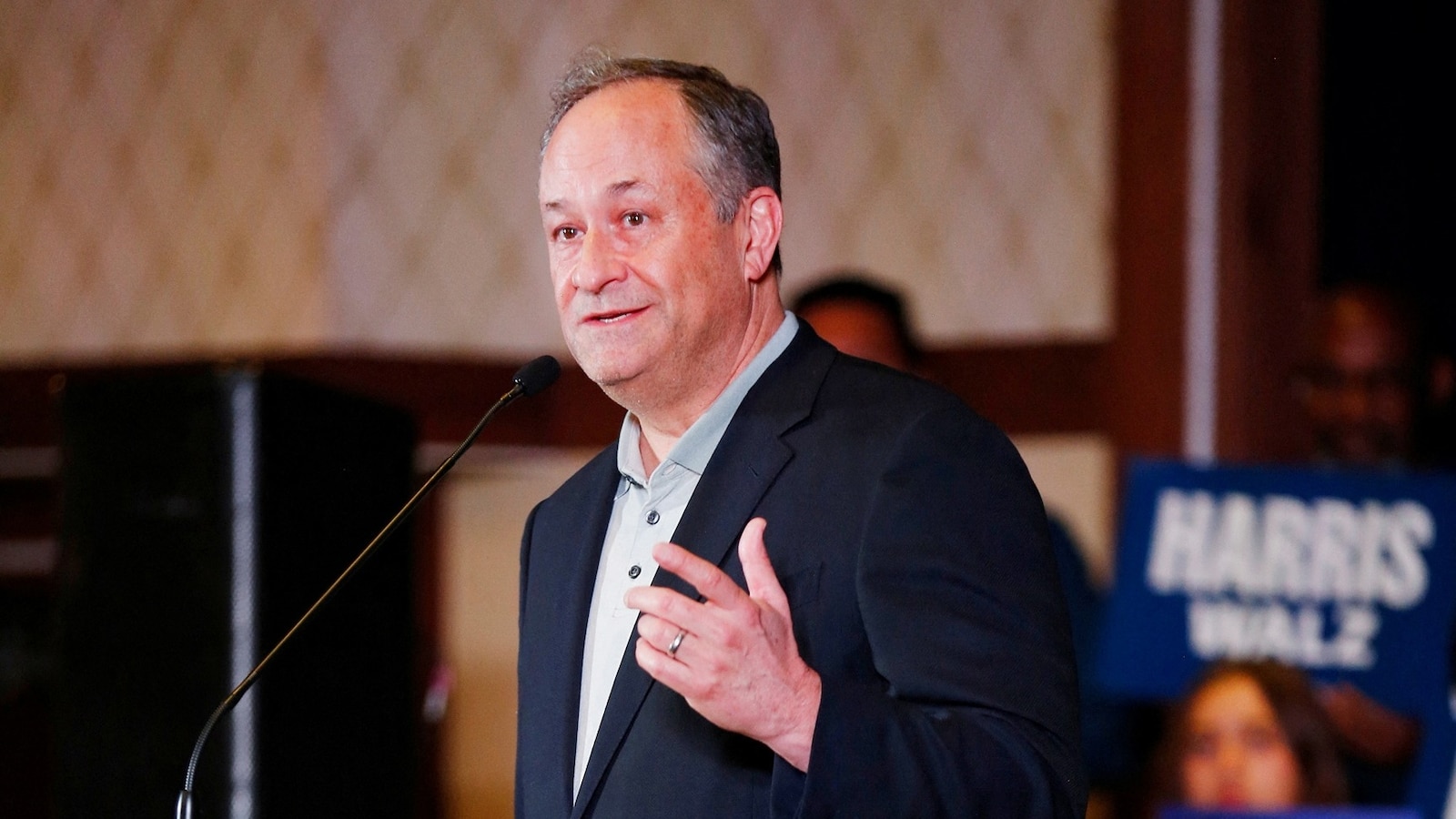The largest prisoner exchange with Russia since the Cold War took months of detailed negotiations that directly involved the president, government officials told ABC News.
The deal, which freed Wall Street Journal reporter Evan Gershkovich and former U.S. Marine Paul Whelan, involved several nations and included key exchanges by President Joe Biden, according to the officials. The deal also freed Alsu Kurmasheva, a Russian-American journalist, and Vladimir Kara-Muza, a legal permanent resident of the U.S.
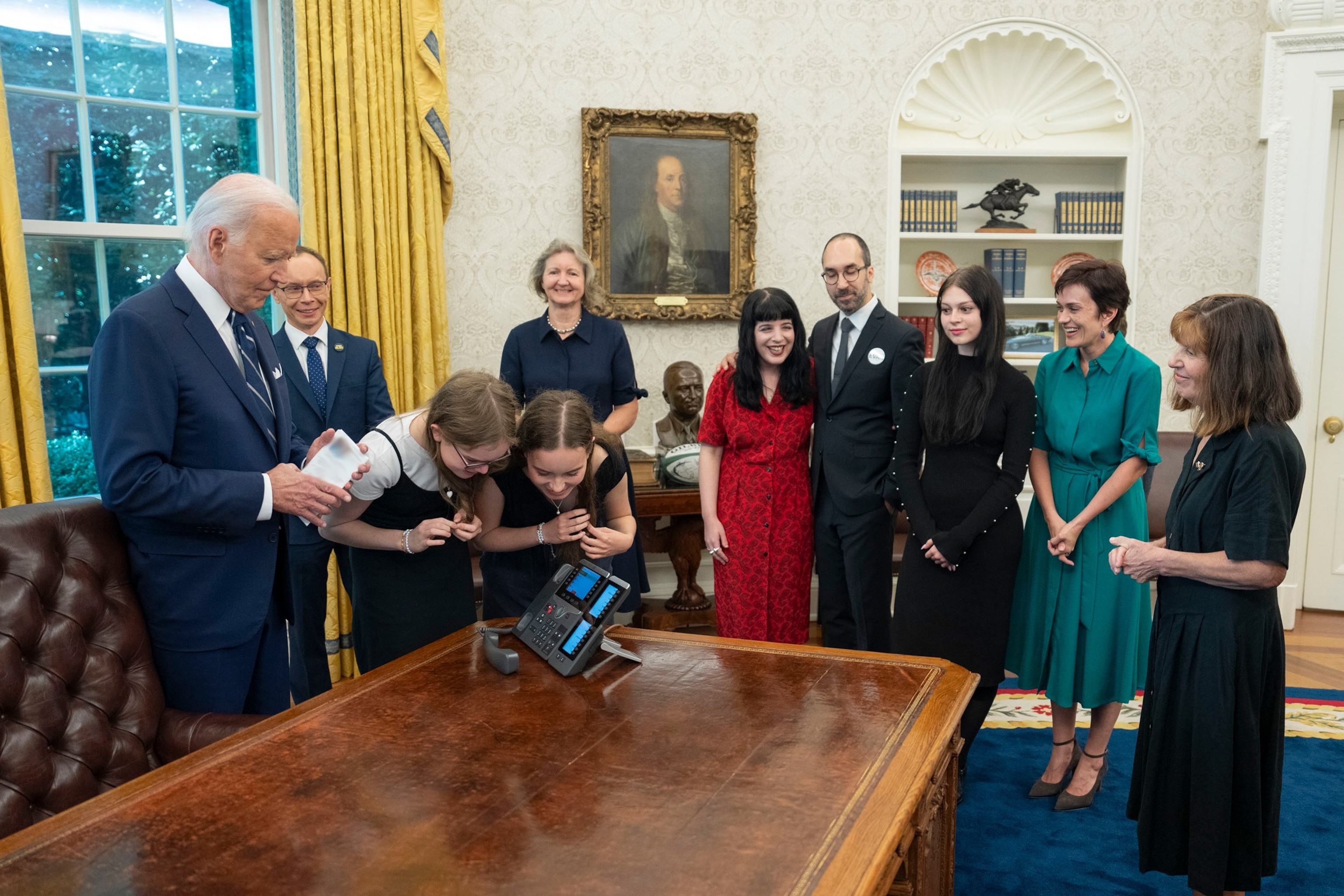
President Joe Biden stands beside the families of Paul Whelan, Evan Gershkovich, Alsu Kurmasheva, and Vladimir Kara-Murza in the Oval Office as they speak to their loved ones for the first time since they regained freedom, at the White House, on Aug. 1, 2024.
POTUS/X
“In the context of the war against Ukraine and the overall degradation of our relations with Russia, securing the release of Americans detained in Russia has been uniquely challenging,” White House National Security Advisor Jake Sullivan said Thursday.
Biden said at a press conference on Thursday, “If anyone questions if allies matter, they do, they matter.”
Negotiations gained traction in last 2 weeks: Sources
Even on the day he announced he was no longer seeking re-election, Biden, who was recovering from COVID-19, was on the phone working to secure this deal, a senior administration official told ABC News.
“The hour before he released that statement – literally an hour before he released that statement – he was on the phone with his Slovenian counterpart urging them to make the final arrangements and get this deal over the finish line,” the official said.
“This exchange is not by accident. It really is the result of a heck of a lot of leadership by President Biden and by the strength of relationships,” a senior administration official said.
Alexei Navalny’s death affected negotiations
Sullivan revealed Thursday that the U.S. and its allies were working on a prisoner deal that would have included the release of Russian opposition leader Alexei Navalny, who was arrested by Russian officials in 2021.
Russian authorities announced Feb. 16 that Navalny had died while in prison.
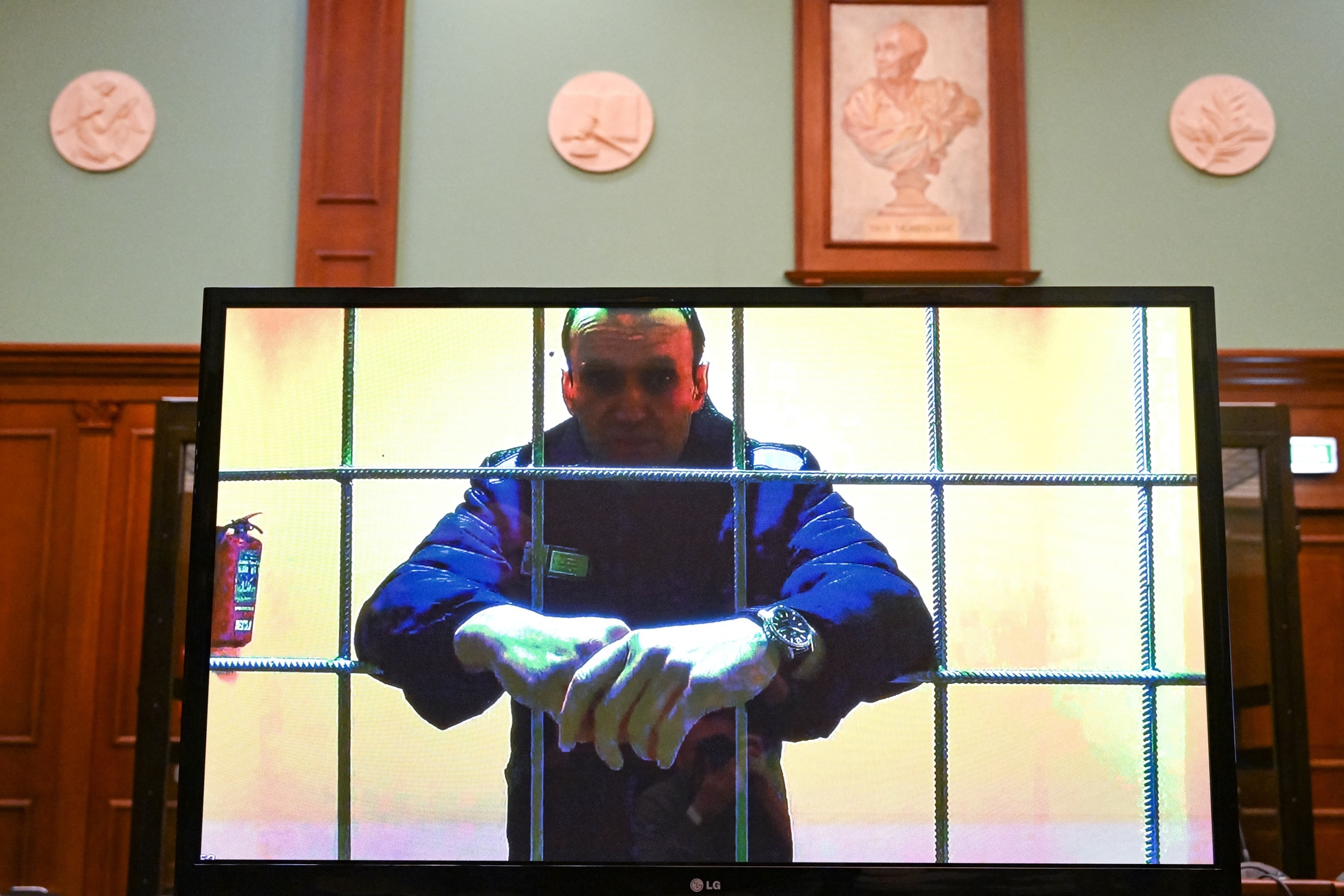
Opposition leader Alexei Navalny appears on a screen set up at a courtroom of the Moscow City Court via a video link from his prison colony during a hearing of an appeal against his nine-year prison sentence he was handed in March after being found guilty of embezzlement and contempt of court, in Moscow on May 17, 2022.
Kirill Kudryavtsev/AFP via Getty Images
The U.S. negotiation team “felt like the wind had been taken out of our sails in terms of efforts to get Paul and Evan back home,” upon learning of Navalny’s death, a senior administration official told ABC News.
But Sullivan, who happened to have a meeting scheduled with Evan’s family that day, felt differently, according to the official.
“He still saw a path forward, he thought it was going to be a little bit more of a rocky path, and it might take us a little bit longer than we thought,” the official said.
“He gathered the team together and he told him to not let Navalny’s death totally torpedo our opportunities to get these folks out,” the official said. “And he instructed them to come up with some additional options to make it politically viable, particularly politically viable to the Germans.”
Germany played key role in release
One key sticking point, according to Sullivan, was that Russia “would not agree to the release of these individuals without an exchange that included Vadim Krasikov,” who was in German custody for allegedly gunning down a Kremlin opponent in Germany.
“That required extensive diplomatic engagement with our German counterparts, starting at the top with the President himself, who worked this issue directly with Chancellor [Olaf] Scholz. We are deeply grateful to Germany for their partnership,” Sullivan said.
To get the German’s on board, a senior administration official credited not only Sullivan’s work to get a proposal in place, but also Biden’s relationship with German Chancellor Scholz.
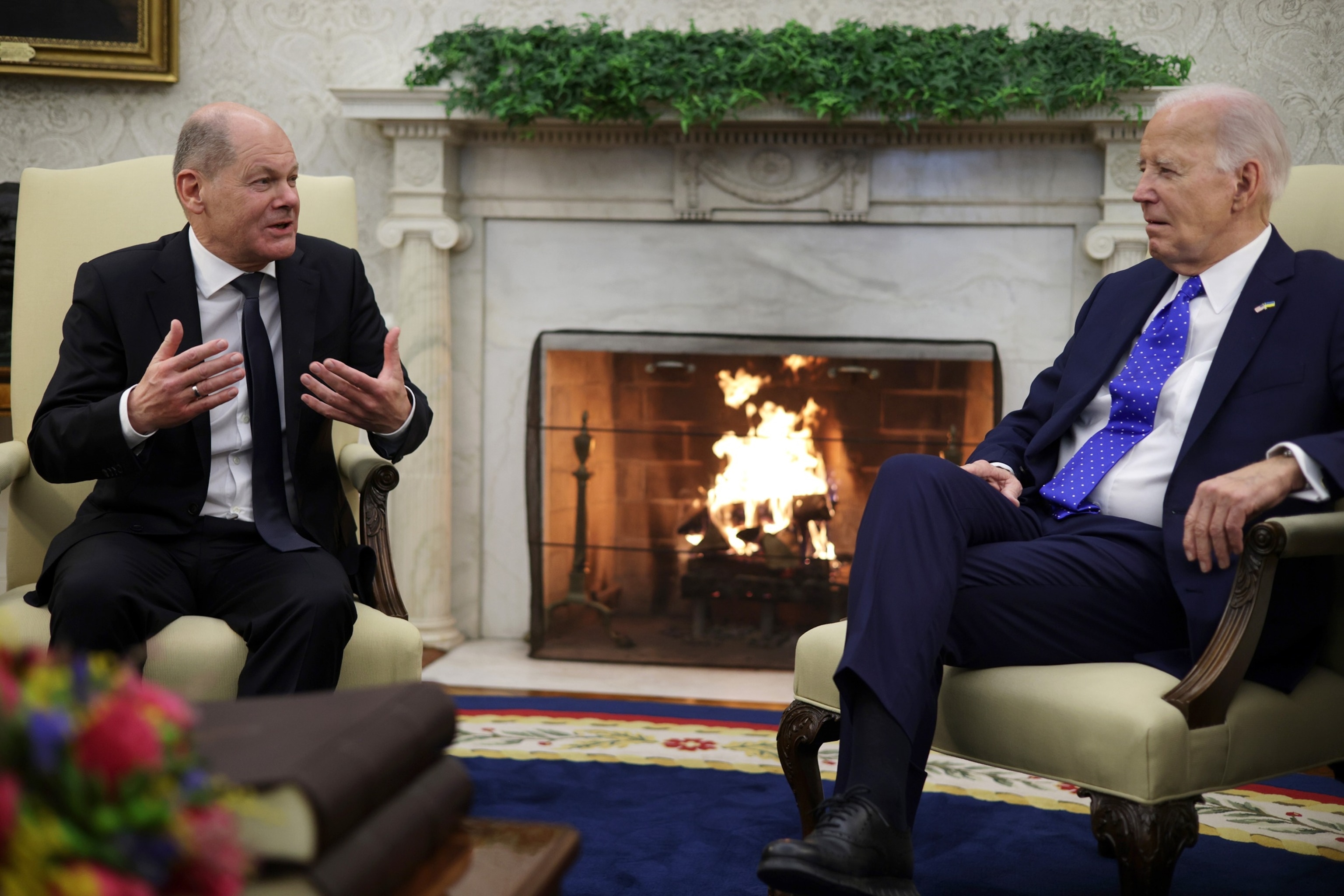
President Joe Biden (R) participates in a bilateral meeting with German Chancellor Olaf Scholz (L) at the Oval Office of the White House on Feb. 9, 2024 in Washington, DC.
Alex Wong/Getty Images, FILE
“All culminated, really, in a call by President Biden to Chancellor Scholz, and then a follow-on visit by Chancellor Scholz in February, where, basically, Chancellor Scholz responded to the president saying, ‘For you, I will do this.’ The president then turned to Jake and said, Get it done,'” the official said.
The administration official stressed that “nobody’s turning a blind eye” to the crimes of Krasikov, or his connection to Russian intelligence service, but said “tough decisions” needed to me made to get these four innocent people back home and to their families.
Swap won’t affect Russian-US relations
There should be no expectation of improved U.S.-Russia relations going forward, according to a senior administration official.
This official said the administration has shown it can hold Russia accountable for its aggression on the world stage while “compartmentalizing out” the work on securing the release of Americans that are wrongfully detained.
“I would be cautious and would counsel anyone to be cautious in surmising from this that it’s some sort of breakthrough in the relationship and it portends some détente with Russia or an easing of the tensions in our relationship.”

Paul Whelan, a former U.S. Marine who was arrested on espionage charges, listens to the verdict in court in Moscow, Russia, on June 15, 2020.
Sofia Sandurskaya/AP, FILE
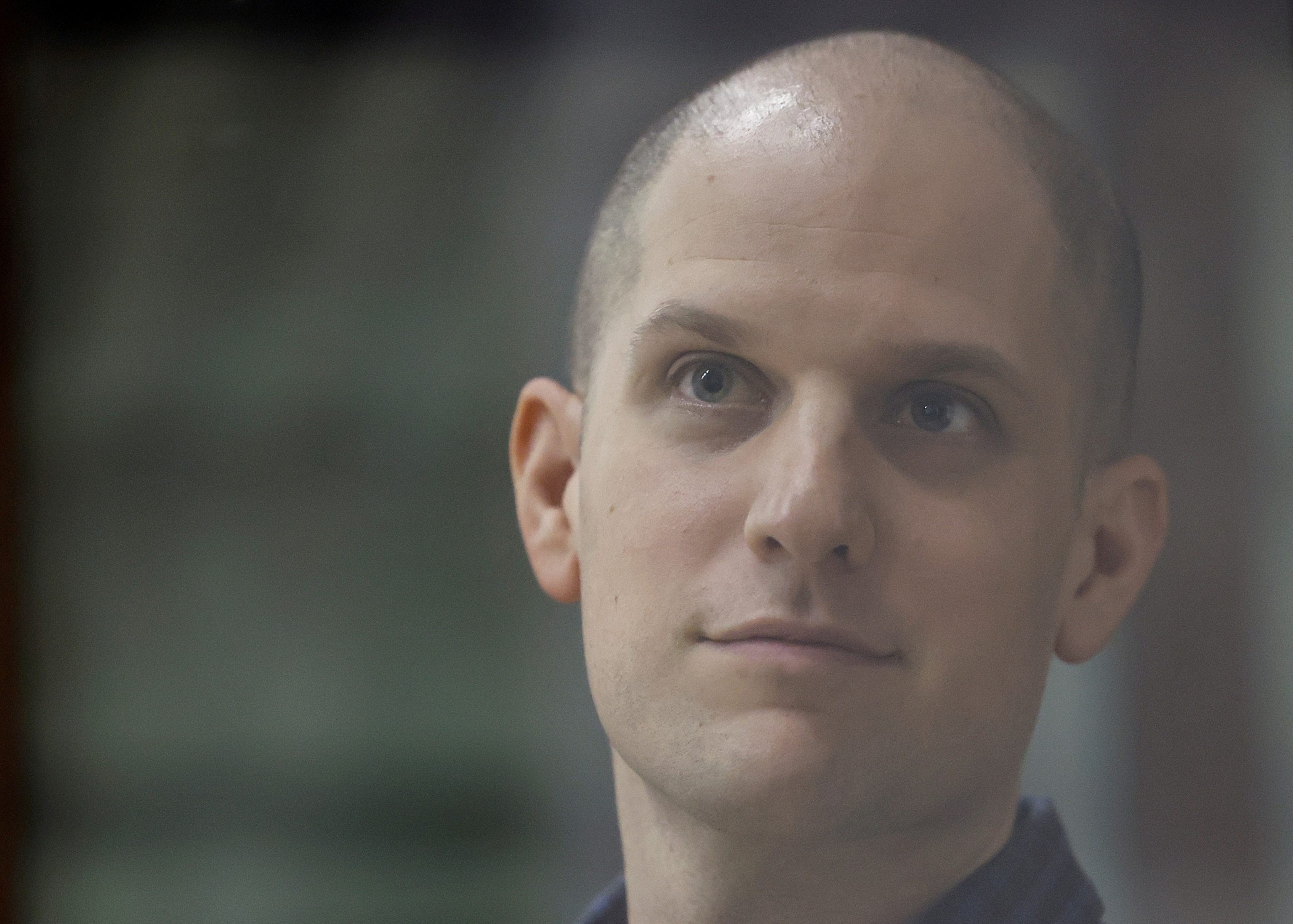
Wall Street Journal reporter Evan Gershkovich, who stands trial on spying charges, is seen inside an enclosure for defendants before a court hearing in Yekaterinburg, Russia June 26, 2024.
Evgenia Novozhenina/Reuters, FILE
This official said Russia’s ongoing war against Ukraine, pressure on NATO allies and across Europe, and the “burgeoning defense relationship” Putin is forming with China, North Korea and Iran are “of significant concern.”
“We will not see a policy change by President Biden and the administration when it comes to standing up to Putin’s aggression.”
ABC News’ Ivan Pereira contributed to this report.
In a recent development that has captured international attention, Russian officials have detailed the intricate process behind the prisoner swap that resulted in the release of two high-profile prisoners, Konstantin Gershkovich and Paul Whelan. The exchange, which took place on a remote border crossing between Russia and Ukraine, marked a significant breakthrough in diplomatic relations between the two countries.
Konstantin Gershkovich, a Russian national who was arrested in Ukraine on charges of espionage, was released in exchange for Paul Whelan, an American citizen who had been detained in Russia on similar charges. The swap was orchestrated by both governments after months of negotiations and diplomatic efforts.
The process of the prisoner swap was carefully planned and executed by officials from both countries. Russian authorities worked closely with their Ukrainian counterparts to ensure a smooth and successful exchange. The two prisoners were brought to the border crossing separately and were handed over to their respective countries’ officials in a coordinated manner.
The release of Gershkovich and Whelan has been hailed as a positive step towards improving relations between Russia and the United States. Both men had been held in detention for several years, with their cases attracting widespread attention and criticism from human rights organizations.
The prisoner swap has also raised hopes for further cooperation and dialogue between Russia and Ukraine, who have been locked in a bitter conflict for years. The successful exchange of prisoners is seen as a potential catalyst for future negotiations and peace talks between the two countries.
While the details of the prisoner swap have been largely kept under wraps, officials have emphasized the importance of diplomacy and dialogue in resolving international disputes. The release of Gershkovich and Whelan is a testament to the power of negotiation and compromise in achieving positive outcomes in complex geopolitical situations.
As both men return to their respective countries and reunite with their families, the focus now shifts to building on this momentum and working towards a more stable and peaceful future for all involved. The prisoner swap serves as a reminder that even in the most challenging circumstances, there is always room for dialogue and cooperation to find solutions that benefit all parties involved.
